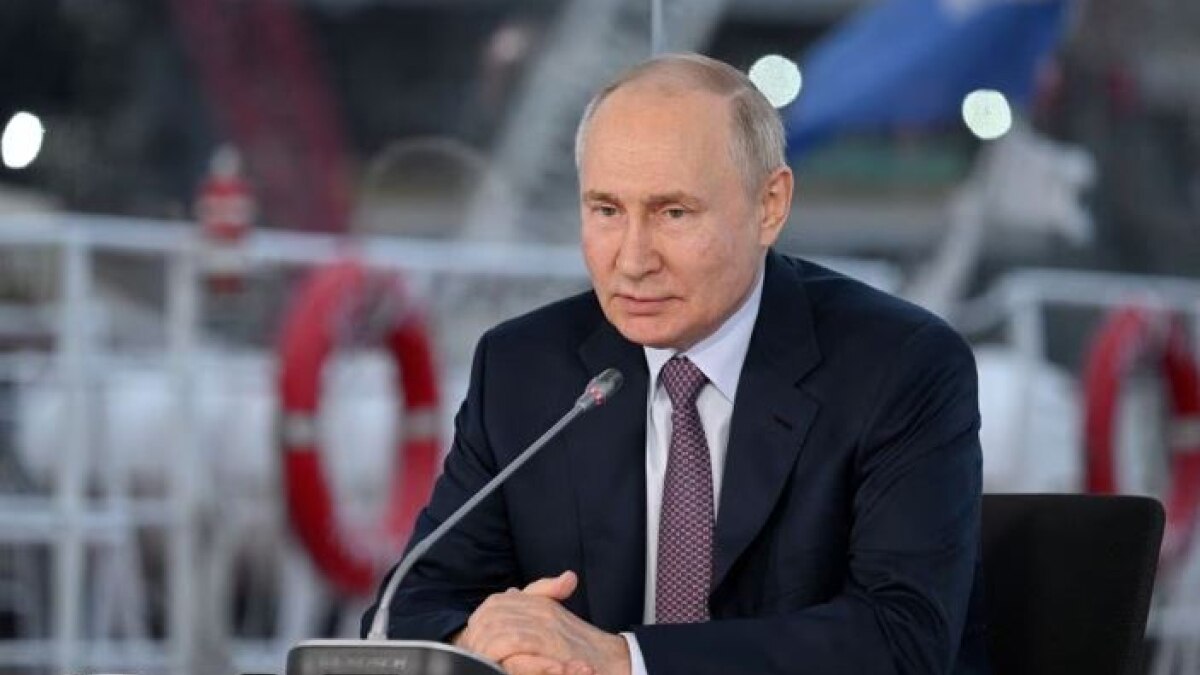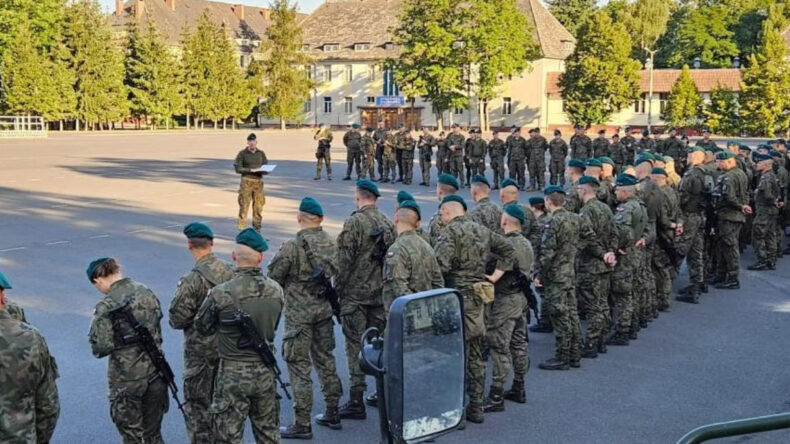Tensions rise in Eastern Europe as Putin accuses Poland of territorial ambitions towards Belarus. The presence of Russian Wagner mercenaries adds to the diplomatic strain. International concern mounts over potential escalation in the region.

Putin Warns Against Alleged Polish Territorial Ambitions
In a recent development, tensions in Eastern Europe have reached a boiling point as Russian President Vladimir Putin accused NATO member Poland of harboring territorial ambitions in the former Soviet Union, particularly towards Belarus. During a televised meeting of his Security Council, President Putin sternly warned that any aggression against Russia’s neighbor and close ally, Belarus, would be treated as a direct attack on Russia itself. These accusations have further strained diplomatic relations between the two countries and sparked international concern.
In response to Putin’s accusations, Poland firmly denied any territorial ambitions in Ukraine or Belarus. The Polish Prime Minister, Mateusz Morawiecki, took to Twitter to condemn Stalin as a war criminal responsible for the deaths of hundreds of thousands of Poles, asserting that historical truths should not be distorted. In a show of diplomatic action, Poland summoned the Russian Federation’s ambassador to the Ministry of Foreign Affairs to address the unfolding crisis.
Wagner Mercenary Presence Triggers Military Maneuvers
Amidst rising concerns, Belarus reported that Wagner mercenaries were conducting military training for Belarusian special forces near the country’s border with Poland. Responding to this development, Poland’s Security Committee decided to relocate military units to the eastern borders as a precautionary measure to guard against potential threats from the Wagner group. Independent estimates suggest that around 2,500 Wagner mercenaries have recently arrived in Belarus, with many of them previously stationed in Ukraine.
Putin’s Warnings and Germany/NATO Support
In an attempt to flex Russia’s military might, President Putin issued stern warnings against any perceived aggression towards Belarus, emphasizing that Russia would respond with all available means at its disposal. Furthermore, Putin expressed concerns about alleged plans for a Polish-Lithuanian unit to be deployed for operations in western Ukraine, hinting at potential territorial ambitions. In response to the escalating situation, German Defence Minister Boris Pistorius reaffirmed Germany and NATO’s readiness to stand by Poland in defending the eastern flank of the military alliance.
Wagner Group’s Confrontation and Putin’s Move
The Wagner group, led by Yevgeny Prigozhin, has been at the center of recent confrontations with Russian authorities. The recent mutiny involving the mercenaries was resolved with an agreement allowing them to relocate to Belarus, prompting Russia’s deployment of tactical nuclear weapons in Belarus for the first time. Putin’s response suggests that Russia views this move as a temporary measure to manage the fallout from the mutiny. William Burns, the director of the US Central Intelligence Agency, described the situation as a “complicated dance,” speculating that Putin may seek retribution against Prigozhin in the future.
As tensions continue to escalate in Eastern Europe, the presence of Wagner mercenaries in Belarus has heightened concerns among neighboring countries and the international community. Putin’s accusations and Poland’s denials have further strained diplomatic relations, with the situation closely monitored by global observers. Germany and NATO’s expressed support for Poland underscores the gravity of the situation and its potential implications on regional stability. As events unfold, the actions and intentions of the Wagner group remain a subject of worldwide concern.













